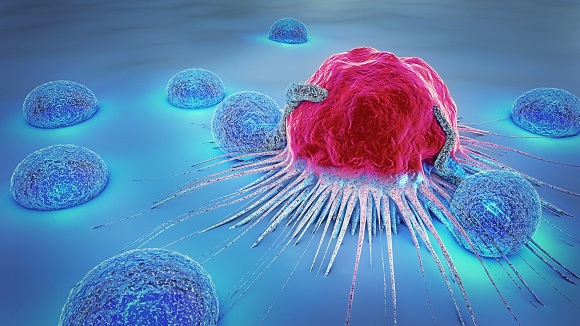Source: Thailand Medical News Jul 26, 2019 6 years, 5 months, 3 weeks, 5 days, 3 hours, 34 minutes ago
Researchers from the LEO Foundation Skin Immunology Research Center at the University of Copenhagen in collaboration with Aarhus and Zealand University Hospitals and Aarhus University have discovered antibiotics can inhibit cancer in the skin in patients with rare type of lymphoma.

Most patients with the rare lymphoma cancer, CTCL, contract staphylococcal infections in the skin. CTCL is a cancer in the so-called T-cells of the immune system, which shows in the skin. Therefore, the patient's immune system is weakened and the skin is less resistant to bacteria. The study showed that that aggressive treatment with antibiotics not only inhibits the staphylococcal bacteria, but also the cancer causing cells. The number of cancer cells is reduced and the cancer is significantly diminished for a period of time in patients with severe skin inflammation who are treated with antibiotics.
When a staphylococcal infection occurs, the healthy immune cells in the body are working overtime and produce growth substances called cytokines, which are used to get the immune system up and running. The cancer cells latch onto the growth substances, using them to accelerate their own growth. The research results show for the first time that the antibiotic treatment can slow down this process.
Professor Niel Odum, lead researcher commented in an interview with Thailand Medical News, "When the staphylococcal bacteria is inhibited with antibiotics, the activation of the immune cells are also inhibited. This means that they do not produce as many cytokines, and therefore the cancer cells cannot get the extra ‘boost’. As a result, the cancer cells are inhibited from growing as fast as they did during the bacterial attack. This finding is ground-breaking as it is the first time ever that this connection is seen between bacteria and cancer cells.
In the past, CTCL patients with infections in the skin have only reluctantly been given antibiotics because it was feared that the infection reoccur as antibiotic-resistant staphylococci after the treatment. This new findings will change this.It has previously been seen that antibiotics have had some kind of positive effect on some of these patients, but it has never been studied what it actually does to the cancer itself. These new findings show that it may actually be a good to give patients with staphylococci on the skin this treatment because it inhibits the cancer and at the same time possibly reduces the risk of new infections.
It is not known if this finding is only valid for lymphoma. It is seen in particularly in this type of cancer because it is a cancer within the immune system. The cancer cells already 'understand' the signals that the immune cells send out. When the immune cells are put to work, so are the cancer cells. At any rate, it is very interesting and relevant to take a closer look at the interaction between bacteria and cancer.
The researchers for the next stage will be looking at the development of new treatments that only target the 'bad' bacteria, without harming the 'good' bacteria, which protects the skin.
Reference: Lise M. Lindahl et al, Antibiotics inhibit tumor and disease activity in cutaneous T cell lymphoma, Blood (2019).
rget="_blank">DOI: 10.1182/blood.2018888107
